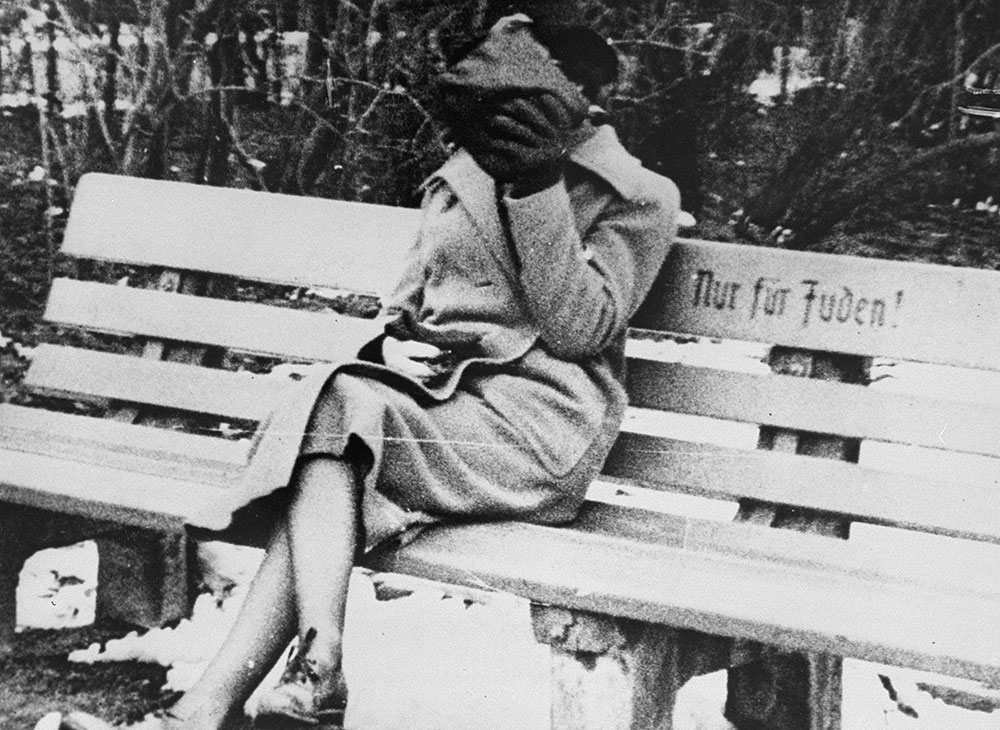Voices on Antisemitism features a broad range of perspectives about antisemitism and hatred. This podcast featured dozens of guests over its ten-year run.
Blog Home > justice and law
-
Floriane Hohenberg
July 2, 2015
Floriane Hohenberg worked for many years for the Organization for Security and Co-operation in Europe on human rights and diversity issues and especially on antisemitism, racism, and xenophobia. Today, she helps governments to collect data and statistics on antisemitism and to develop teaching materials to confront it.
-
Wendy Lower
October 2, 2014
Wendy Lower is the John K. Roth Professor of History at Claremont McKenna College. Her book Hitler’s Furies: German Women in the Nazi Killing Fields examines how ordinary women participated in the Holocaust, and also how their participation has been systematically downplayed since the war.
-
Paul Isaac Hagouel
December 5, 2013
In May 2012, the Golden Dawn party received nearly 7% of the popular vote in Greece and gained a toehold in the Parliament. Leveraging fears about the country's ongoing economic crisis and unemployment, Golden Dawn used anti-immigrant and anti-minority rhetoric to gain votes. As a representative of the Greek delegation to the International Holocaust Remembrance Alliance, Paul Hagouel is concerned about the rise of rightist parties in governments across Europe.
-
Jeremy Waldron
August 2, 2012
Jeremy Waldron calls the topic of hate speech a “hardy perennial” and one we must continue to revisit. In his book The Harm in Hate Speech, Waldron examines First Amendment legal protections and considers the damage inflicted on society by hate speech.
-
Kevin Gover
August 5, 2010
As a young man in the South, Kevin Gover witnessed prejudice of all kinds, including antisemitism. Today, in his office across the National Mall from the U.S. Holocaust Memorial Museum, Gover reflects on some of the shared goals and challenges for Jews and Native Americans.
-
David Reynolds
June 3, 2010
One year ago this month, Officer Stephen Tyrone Johns died heroically in the line of duty, protecting visitors and staff at the U.S. Holocaust Memorial Museum from an avowed antisemite, Holocaust denier, and racist. Special Police Officer David Reynolds worked alongside Officer Johns. Reynolds continues to welcome and protect people at the Museum as he has for over a decade. Reynolds feels his role is important because of the antisemitism, racism, and bigotry that still exist in the world.
-
Louise Gruner Gans
May 6, 2010
Louise Gruner Gans' experiences with prejudice have influenced her work as a lawyer and as a judge, and have reminded her to keep a human perspective on the law.
-
Charles H. Ramsey
January 14, 2010
As Chief of Police in Washington DC, Charles Ramsey developed a training program for law enforcement officers in conjunction with the United States Holocaust Memorial Museum and the Anti-Defamation League. Now in its eleventh year, the program examines the history of the Holocaust in order to help officers reflect on their personal and professional responsibilities.
-
Brigitte Zypries
August 13, 2009
As Germany's Justice Minister, Brigitte Zypries is responsible for upholding justice, rights, and democracy in her country. Zypries explains why her government passed a law making Holocaust denial a criminal offense and why that law is important.
-
Gregory S. Gordon
May 21, 2009
Gregory Gordon helped to prosecute the landmark "media" cases in Rwanda–where hate speech, broadcast over the radio, was directly linked to the genocide of the Tutsi people. Gordon believes that the lessons learned in Rwanda could be applied in Iran and elsewhere, to prevent these incitement tactics from taking hold.

